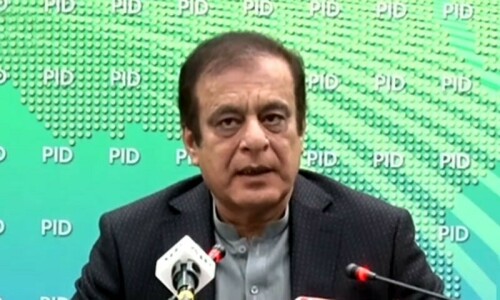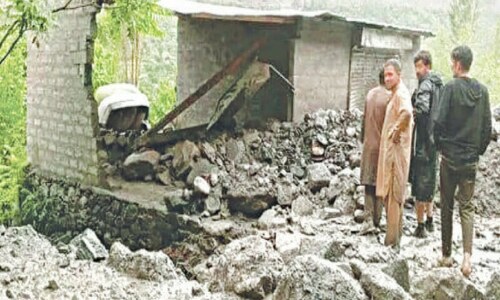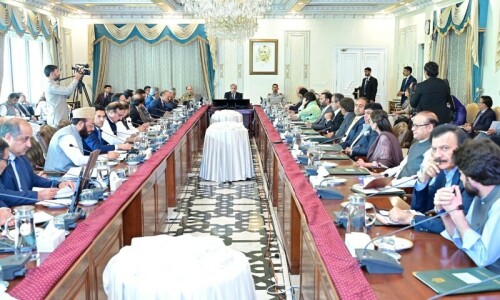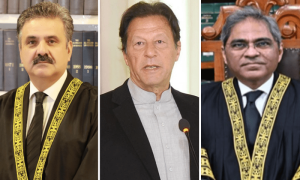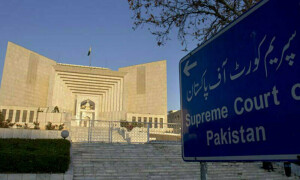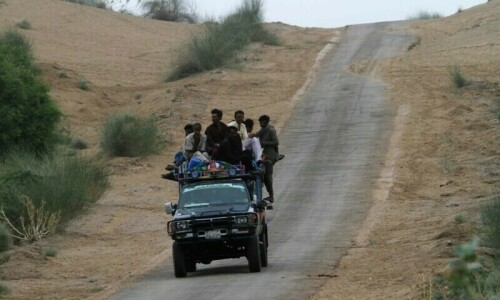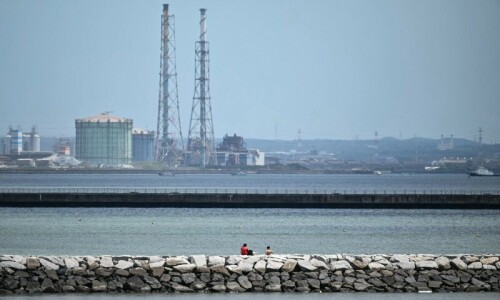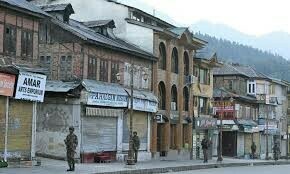ISLAMABAD, July 2 Amid a controversy over the legal team to represent Islamabad, Pakistan and India will meet in New Delhi on Tuesday (July 6) to finalise a Court of Arbitration (COA) for adjudication of the Kishanganga hydropower project, being built by India on Neelum river in violation of the 1960 Indus Waters Treaty.
Informed sources told Dawn on Friday that the two countries had nominated two arbitrators each on the seven-member court. Pakistan and India are now required to suggest names of three independent arbitrators to complete the court. This will set the stage for the COA to take up Pakistans complaint against Indias decision to construct a 330-mw storage project through diversion of Neelum river.
Under the treaty, the three independent arbitrators must be experts in water disputes, engineering and law. They should be members of either the International Court of Justice (ICJ), the World Bank or the Massachusetts Institute of Technology (US).
In case of a disagreement on names, the three independent members are to be selected through a secret draw.
Pakistan has nominated Bruno Simma, a German jurist currently working with the ICJ, and Jan Paulson, a Norwegian from an international law firm as its arbitrators.
India has nominated Peter Tomka, a Slovak national currently working as vice-president of the International court of Justice, and Lucius Caflish, a professor at the Graduate Institute of International Studies, Geneva.
Sources said the ministries of water & power and law were still in disagreement over composition of the team to plead Pakistans case.
According to the sources, a consultant to the law ministry wanted to have complete control over the litigation against India and opposed retention of Pakistans legal team even though the prime minister had given his approval twice. The team is to be headed by Prof James Crawford while the other members are Barrister Samuel Wordsworth and Feisal Naqvi.
These sources said work on the preparation of a brief for COA had come to a halt following the law ministry's decision to terminate the services of Feisal Naqvi, who was required to draft Pakistans case for vetting and approval by James Crawford.
They said the ministry of water and power, Pakistans commissioner for Indus Commission and relevant agencies of the armed forces had asked Mr Naqvi to continue with the job because they thought he was familiar with the case because of his long association with the Kishanganga project and his experience in the Baglihar case with India.
A young Supreme Court advocate, Mr Naqvi has been ranked among the top lawyers in Pakistan by the Chambers International for the past four years. He has represented Pakistan in a number of UN-related matters.
The three stakeholders believed that were Feisel Naqvi not allowed to assist Mr Crawford, they would need at least six months to train a fresh lawyer who can digest legal intricacies of the matter and then assist any foreign jurist to plead Pakistans case before the COA.
“The time is of real essence and any delay will help only India,” an official of the water and power ministry said.
Pakistan is opposed to the Kishanganga project because its diversion will reduce by 16 per cent the power generation capacity of the 969-MW Neelum-Jhelum power project on the same river downstream Muzaffarabad in Azad Kashmir.
The project will cause a loss of energy worth Rs6 billion every year.
Moreover, the diversion will reduce river flows near the Line of Control, on the Pakistan side, for at least six months and cause an irreparable loss to the environment, particularly the Musk Deer Gurez Park - a vast grassland in AJK near the LOC _ and deprive the Neelum valley of tourism.
Overall, about 200 kilometres of river bed in Azad Kashmir will be affected by the Kishanganga project. The river will turn dry over 40kms, a negation of international environmental laws. Under the law, at least 70 per cent of river flows are to be protected in case any project is taken in hand.
Pakistan has also objected to the design of the Kishanganga project as it envisaged drawdown flushing, which is against the spirit of the 1960 treaty. The design will arm India with the power to cause floods and water scarcity on the Pakistani side.
As required under the 1960 Treaty, Pakistan has exhausted all bilateral remedies before taking the dispute to a neutral party - a court of arbitration in this case - despite Indias delaying tactics.
On Oct 22 last year, an inter-ministerial meeting decided to file an arbitration request. The only pre-condition was to send a reply to the last letter from India and file an arbitration request two weeks later. However, the ministry of law sat on the file from October last year till April and hence an arbitration request was sent on April 18.
The six-month delay has already hurt Pakistans case and the country cannot afford further delay, the power ministry official said.












